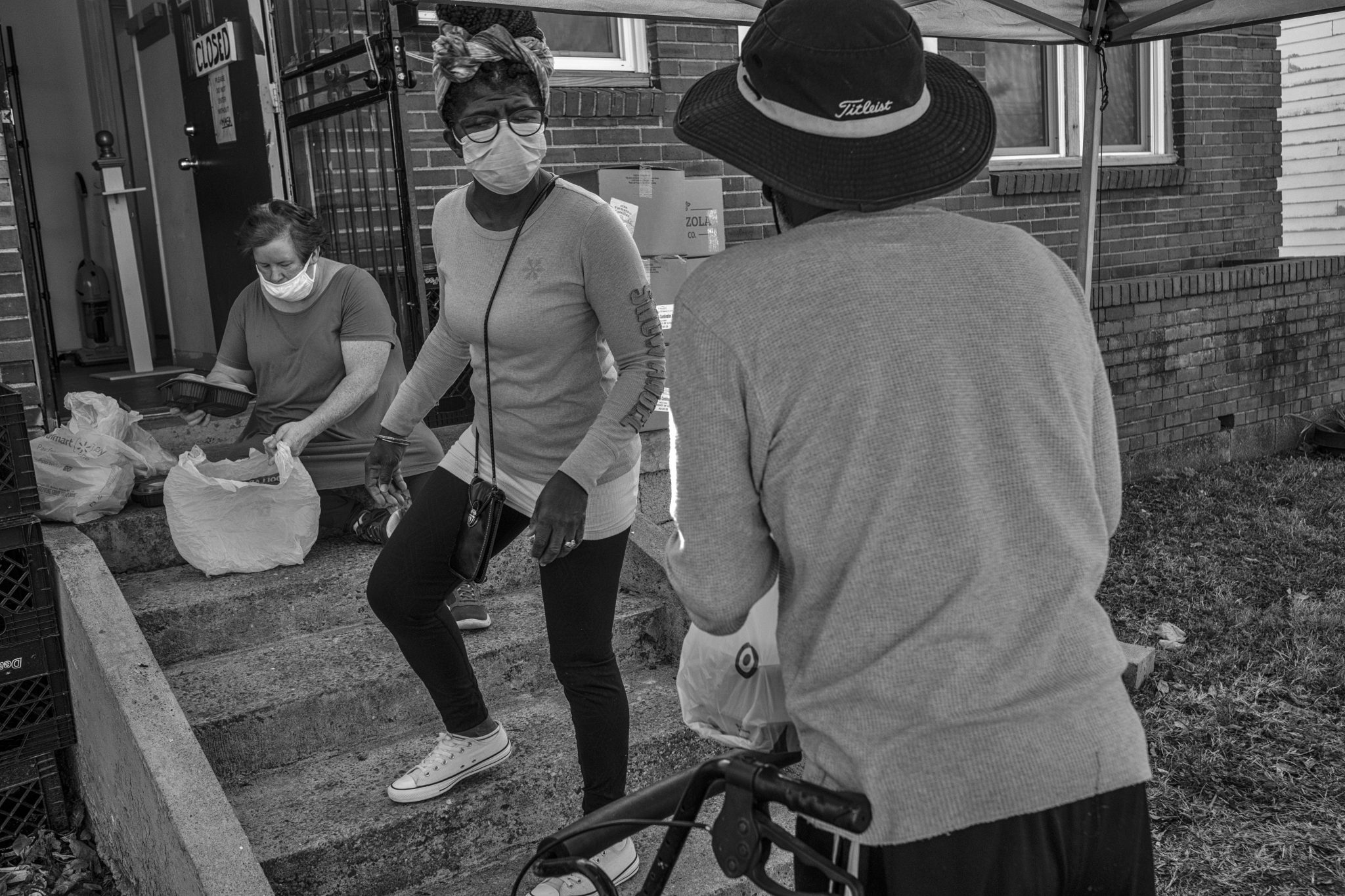While Jessica Crumbley was able to keep her job as assistant manager at Dollar General in Loudon, Tennessee, throughout the pandemic, her wages barely kept her disabled husband and three children afloat.
Any financial hiccup could be enough to destabilize her family, and in July, Crumbley quarantined from COVID-19 without knowing if her job would pay sick leave.
Crumbley's saving grace came when she began receiving funds for each of her children through the Child Tax Credit, a federal program meant to help families recover economically from the pandemic.
"It pays for our lights and water. [The Child Tax Credit Program] makes sure the kids have internet so their computers will work. [It pays for] school clothes," Crumbley said. "It's been a big help, it really has, to us."
On July 15, families automatically started receiving monthly payments from the Child Tax Credit program as part of the American Rescue Plan, approved by Congress in March with no Republican votes.
Families that filed tax returns in 2019 or 2020 received anywhere from $250 to $300 per child, depending on the age of the children. By the end of the year, children over 6 years old will have received total payments of $3,000, and children under the age of 6 will have received $3,600.
Rep. Jim Cooper, a Democrat from Nashville and a congressional sponsor of the child tax credit bill, said 48,300 Tennessee families have received payments since the program began.
"This is a game-changer because if you can just get some cash to families, they're going to get more steady on their feet and deal with the crisis we all face," Cooper said.
Tennessee statistics:
— Tennessee ranks seventh in the nation for food insecurity.— Hancock County reports the highest level of food insecurity at 22.5%.— The U.S. Department of Agriculture defines food insecurity as a lack of consistent access to enough food for an active, healthy life and a lack of available financial resources for food at the household level.
Nearly every Tennessee county has had an increase in food insecurity since the pandemic began 18 months ago, according to Feeding America. In East Tennessee, Hancock County experienced the highest rates of food insecurity, which increased from 21.8% in 2019 to 22.5% in 2021.
Compared to other states, Tennessee ranked seventh for food insecurity among women and fourth among residents with some college education, according to the Food Research & Action Center, which uses data collected from the Census Household Pulse Survey.
Tennessee also ranks second in the nation for food insecurity among white residents.
By 2020, 23% of adults with children had little to no confidence in their ability to pay their mortgage or rent, according to the Tennessee Commission on Children and Youth. By 2021, rates decreased to 13% among white residents, but Black Tennesseans continued to report a lack of confidence.
Children with food insecurity may experience a cycle of deprivation and overeating, which in turn can lead to obesity and other health-related problems.
"There's a million different reasons why hard work and good values don't get you out of poverty," Cooper said.
For this reason, children's advocates have hailed the program as a way to reduce child poverty by half and are urging the U.S. Congress to extend the program past its December end.
"It has the potential to pull a lot of families out of poverty and should be put into place permanently. The nutrition safety net is crucial, but families who struggle with food insecurity also struggle to pay the rent, keep the electric bills paid, put gas in their cars and afford the cost of school supplies for their kids," said Signe Anderson, spokesperson for the Tennessee Justice Center.
Tennessee currently offers $375 in food benefits through the Supplemental Nutrition Assistance Program for eligible families, and an extension was approved for October. Families were originally required to have face-to-face interviews to apply, but requirements were waived during the pandemic. The waivers have not been extended. A 15% increase in SNAP benefits is also set to expire by the end of this month.
In 2020, states were able to opt into the federal Pandemic Electronic Benefit Transfer program, known as P-EBT, which allowed eligible children to have meals while schools conducted virtual learning. The Tennessee Department of Human Services was slow to roll out the program and has still not yet distributed P-EBT for this school year, Anderson said.
She said all the types of assistance help.
Early studies conducted by the Urban Institute show that the Child Tax Credit, if expanded, could reduce child poverty rates in Tennessee by 45.9%.
Children of all racial and ethnic backgrounds would benefit, although children of color face higher rates of food insecurity than white children, according to the Food Research & Action Center.
Families who haven't filed taxes are still able to apply, including households of mixed status. Only the children are required to have a Social Security number for families to apply for Child Tax Credit benefits.
Democrats won two seats in Georgia this year - giving the party a functional Senate majority - and are now seeking to expand the program until 2025. Negotiations are currently underway in their $3.5 trillion budget reconciliation package.
As for Crumbley, she plans on having the family stabilized by December, although she's hoping the program is extended.
"I don't get hazardous pay, bonuses or other things like a lot of other companies do due to the pandemic. It's been whenever I work is the only income I have to help my family survive week to week," she said.
Read more at TennesseeLookout.com.

